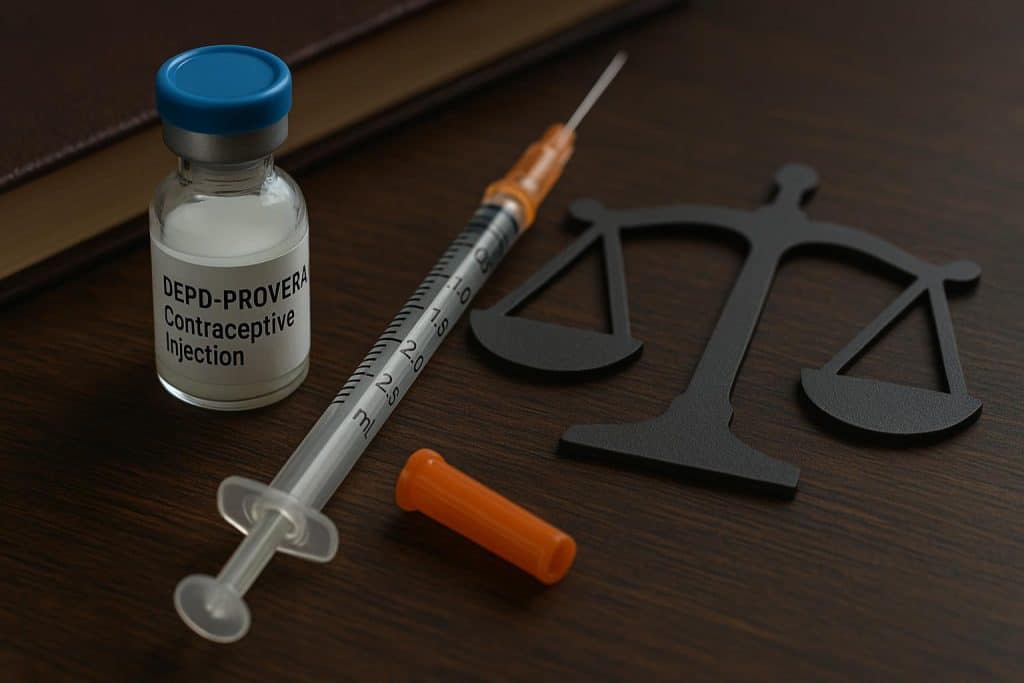When medical treatments intended to improve health result in serious harm, patients are left grappling with physical, emotional, and financial burdens they never anticipated. This is the reality for many individuals who have experienced severe side effects after using Depo Provera. From a legal perspective, pursuing justice in these cases requires not only courage but also the guidance of an experienced lawyer who understands the complexities of pharmaceutical litigation.
Depo Provera, a widely used contraceptive injection, has been linked to a range of adverse effects, including bone density loss, blood clots, and long-term health complications. For those who have suffered such outcomes, the decision to file a lawsuit can feel overwhelming. Victims often ask themselves: Do I really need a lawyer for this? The answer, from a professional standpoint, is unequivocally yes.
Pharmaceutical lawsuits are among the most complex types of injury litigation. They involve navigating layers of medical records, scientific studies, regulatory compliance, and corporate defense strategies. A lawyer skilled in this area understands how to connect these elements into a compelling case that demonstrates negligence or failure to adequately warn patients about risks. Without this expertise, victims risk being outmaneuvered by powerful pharmaceutical companies with deep resources.
One of the lawyer’s first responsibilities is evaluating the strength of the case. This includes reviewing the victim’s medical history, timelines of treatment, and evidence of adverse effects. An attorney will often consult medical experts to verify the connection between Depo Provera use and the injuries sustained. Establishing this causal link is critical, as pharmaceutical companies typically argue that other factors were to blame. A lawyer ensures that these arguments are effectively countered with evidence and expert testimony.
Another vital role of legal counsel is managing communication with the opposing side. Pharmaceutical companies and their insurers often attempt to settle claims quickly for minimal amounts, especially when victims lack representation. Lawyers protect clients from being pressured into unfair agreements and instead negotiate settlements that reflect the true scope of damages. These damages may include medical expenses, lost wages, diminished earning capacity, pain and suffering, and long-term health costs.
From a broader perspective, lawsuits involving Depo Provera also highlight the issue of corporate accountability. Lawyers examine whether the manufacturer failed to disclose known risks, misrepresented safety information, or neglected to conduct adequate testing before releasing the product. If such negligence can be proven, it strengthens the case and increases the chances of achieving justice. Beyond compensation, successful lawsuits also pressure companies to adopt better safety practices, thereby protecting future patients.
For victims, the emotional toll of such a case can be significant. Legal professionals understand this and often take on not only the role of advocate but also that of a steady guide through a stressful process. They handle the legal complexities so that clients can focus on recovery. This support can be the difference between feeling powerless and regaining a sense of control.
The decision to pursue legal action is not simply about financial compensation. It is also about holding large corporations accountable for the consequences of their products. Victims deserve to know that their voices matter and that the harm they endured is not dismissed or ignored. From a lawyer’s standpoint, each case is an opportunity to restore balance by ensuring that those responsible face the consequences of their actions.
If you have experienced side effects from Depo-Provera, such as brain tumors or other serious health issues, it’s crucial to consult with a legal professional. Cases involving Depo-Provera have led to significant legal actions, and having an experienced attorney can help you navigate the complexities of such lawsuits.
Ultimately, seeking legal counsel is not just advisable, it is essential. Victims of Depo Provera injuries deserve skilled representation that can navigate the legal battlefield and secure the justice they deserve. Without a lawyer, the odds are heavily tilted in favor of the pharmaceutical companies. With one, victims gain a partner who is committed to fighting for their rights, their recovery, and their future.
